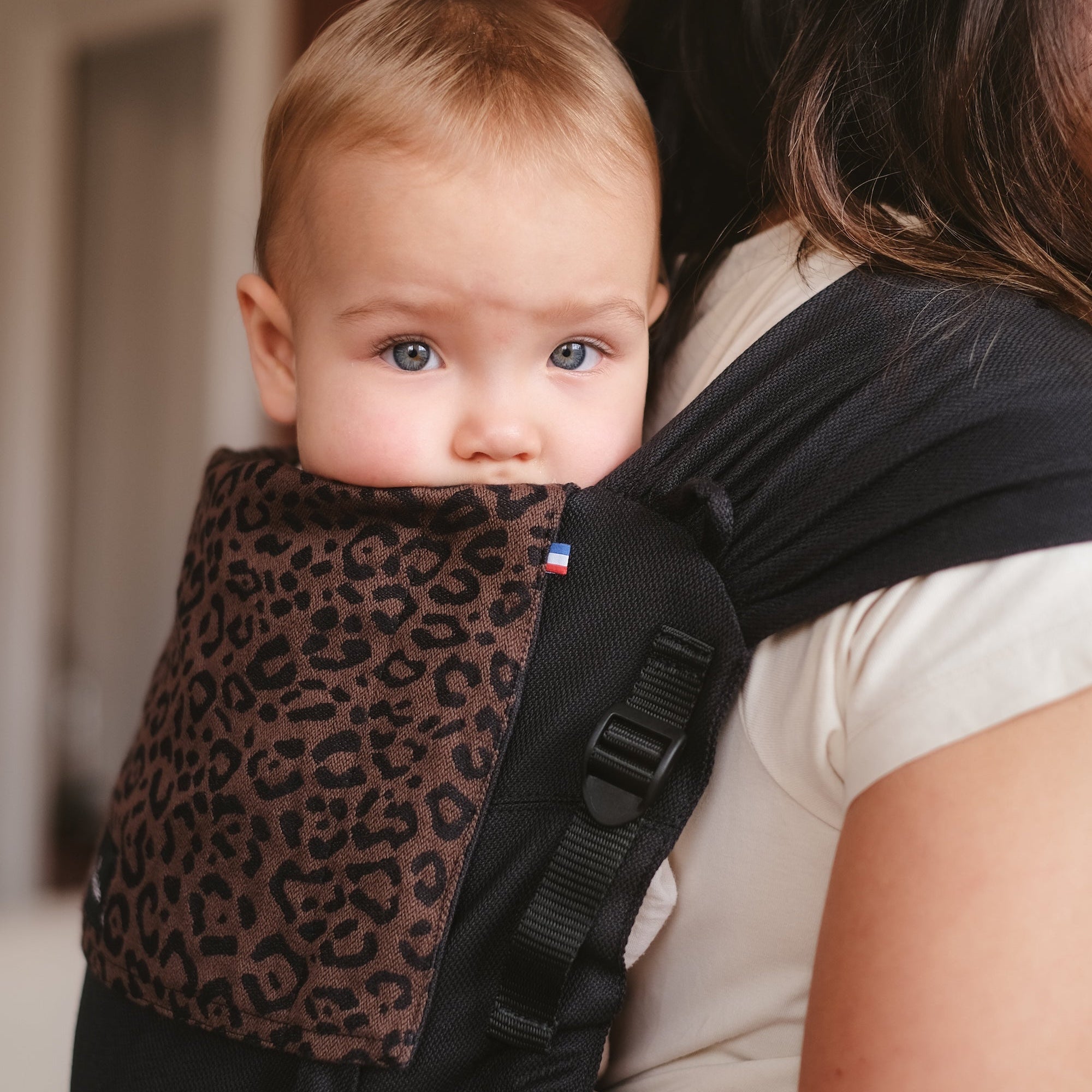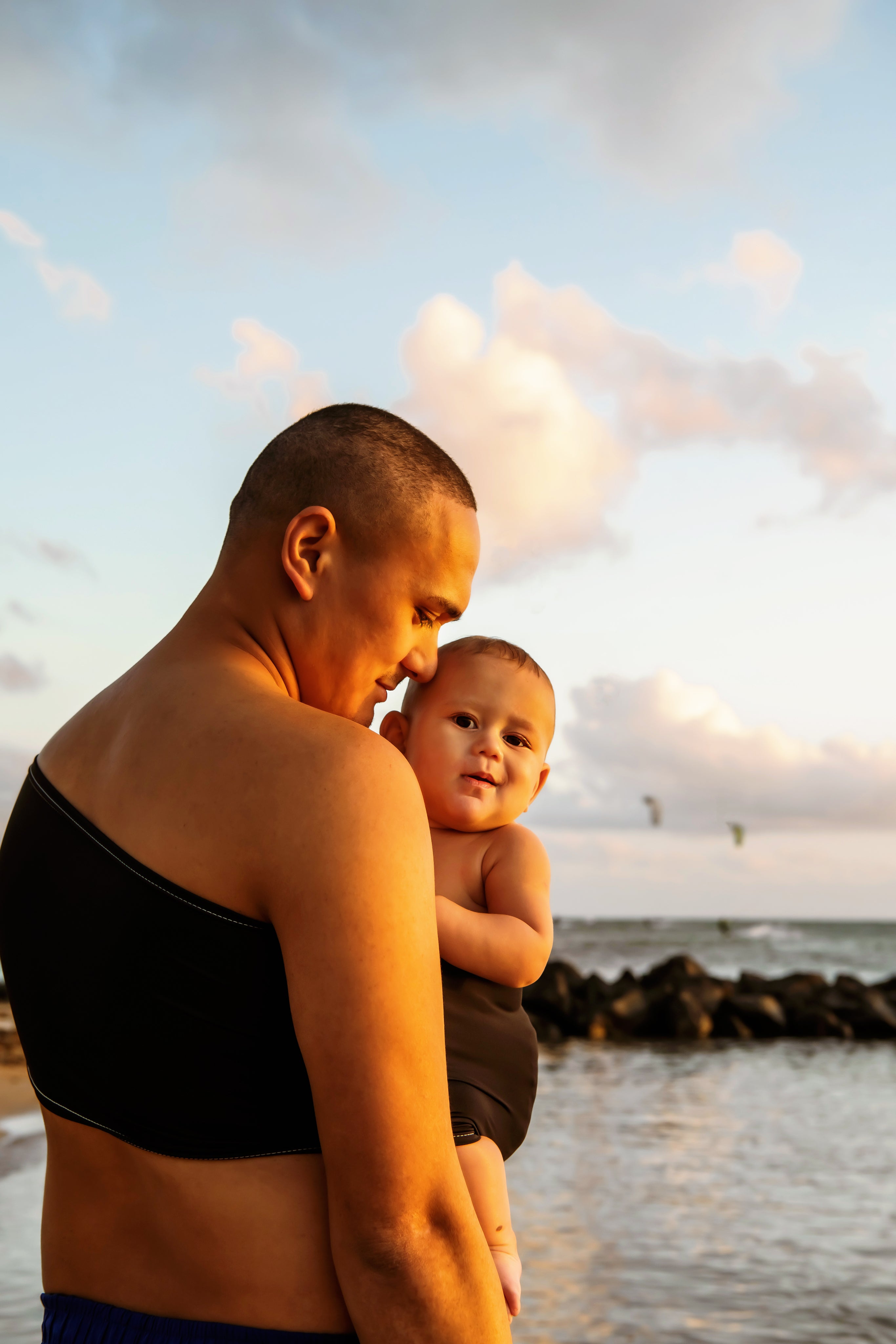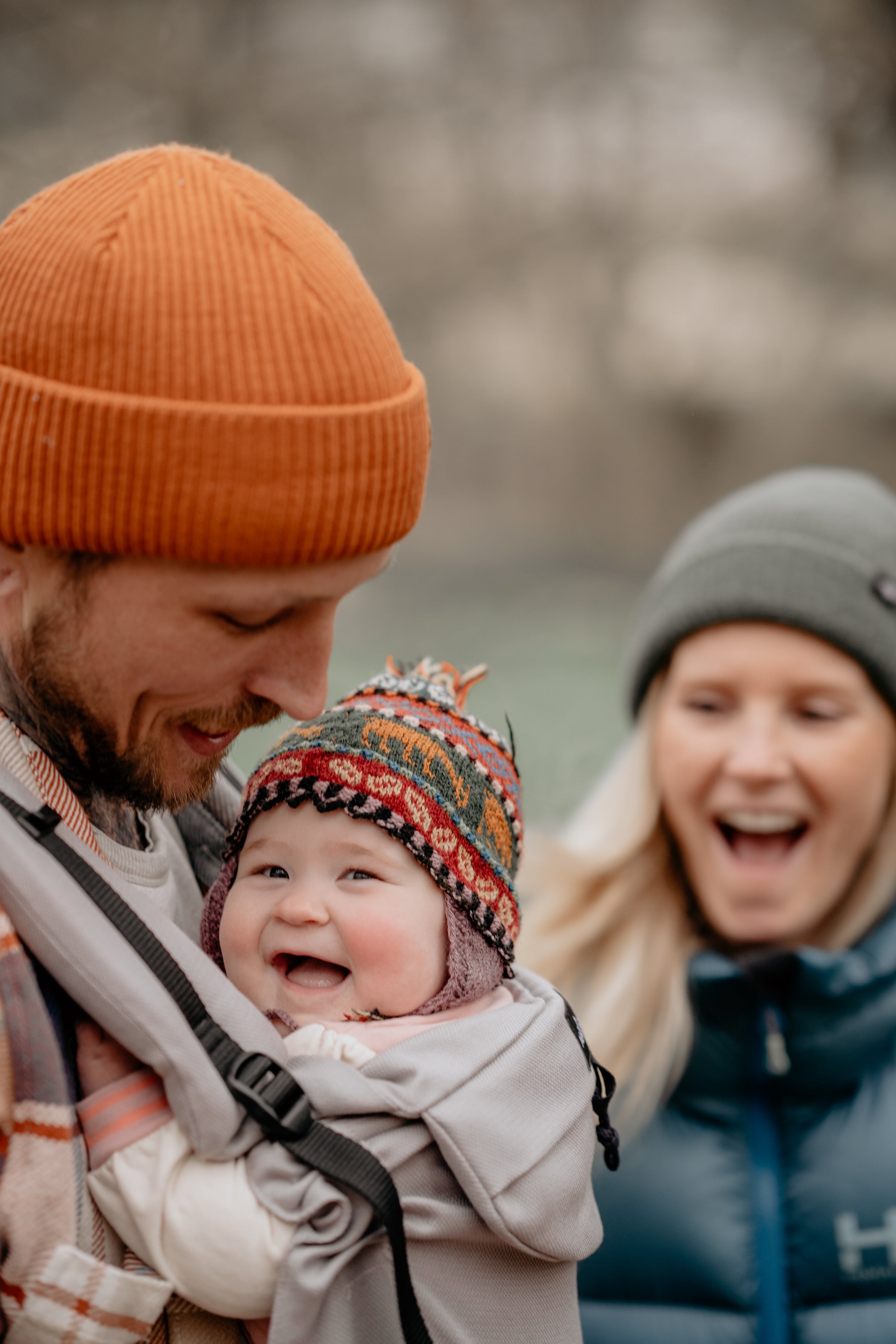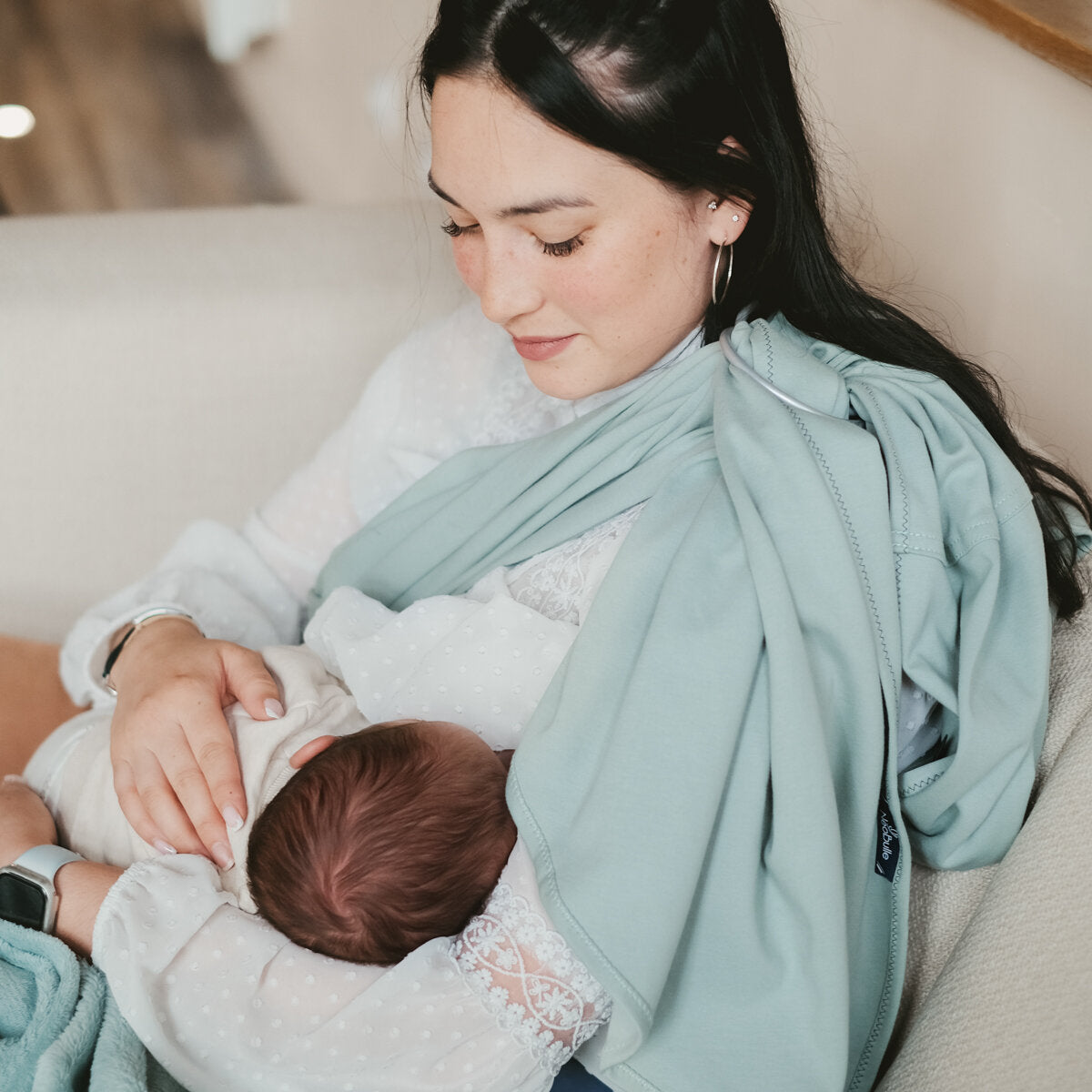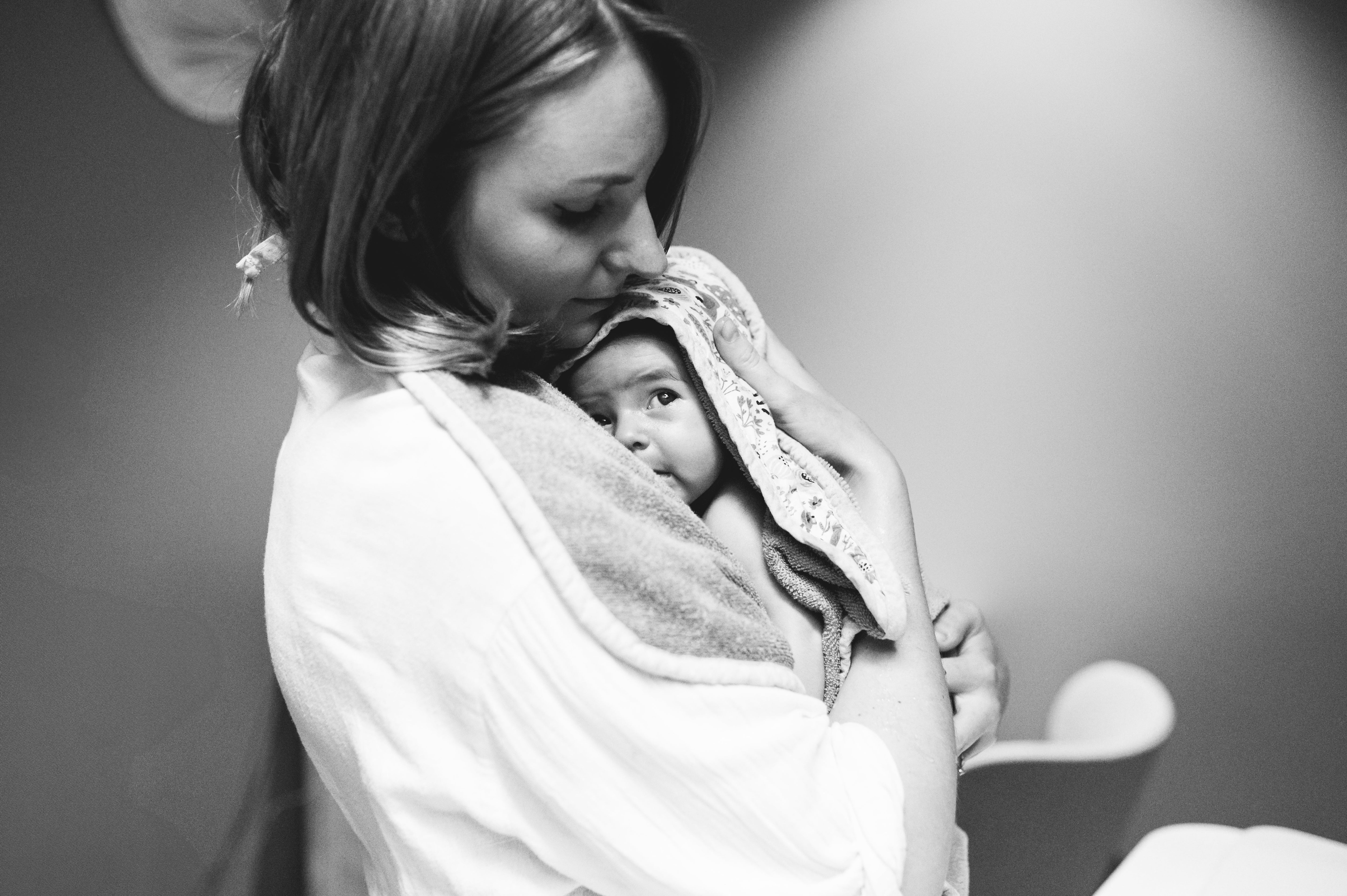COUGH!!!
Runny nose, cough, fever… You have to face the truth: your little one is sick. Winter is settling in and with it its load of small viruses that are not always very friendly… Is it necessarily inevitable? Fortunately not. Even if unfortunately we cannot prevent everything, some simple little gestures can help limit infections and help preserve at least your little one's health. Shall we talk about it?
"He's going to catch his death!" or the truth about winter viruses
You all have heard it, that sharp little remark:
"Cover him up, he's going to catch cold!"
or its famous variant:
"Close his coat, he's going to catch his death!"

There is Aunt Jeannine horrified that babychou is not wearing socks on the cold tiles, passersby offended that the hat does not cover his ears sufficiently, and on top of that, the weather keeps changing, one moment it's cold, the next it's hot... There are no more seasons, my good lady... Obviously, it's because of that that he fell ill, isn't it?
Well no!
"Falling ill" as we say, only requires one thing: contact with a pathogenic element (a virus or bacteria in this case).
Your little one could go sledding in just a diaper in the snow, if he didn't come into contact with a "microbe", he wouldn't have a cold!
The truth about winter viruses is that they have absolutely nothing to do with how we dress our children, which is more about their comfort (which is not insignificant). To protect against illnesses, it is therefore crucial to focus on the modes of transmission of pathogens and act on these!
Protecting your baby: precautions between individuals
The very first precaution to take, one that we shouldn't even have to mention because it is so obvious: unless necessary, do not visit a young child if you are sick yourself!
"But it's just a little cold" in a healthy adult, can easily turn into a bronchiolitis with more serious consequences in a fragile infant.
For viruses spread through aerosols (in the air), such as those causing the cold, flu, bronchiolitis, or COVID-19, the good practices to limit transmission include:
- Wearing a mask at the slightest symptom (and recommended systematically when visiting a newborn or any vulnerable person)
- Ventilating the room to reduce viral concentration in the air
Adults who regularly come into contact with a baby are also encouraged to get vaccinated against the flu and COVID-19!

NB: another rising pathology currently (not only seasonal), whooping cough! A vaccine booster is strongly recommended during pregnancy (between the 5th and 8th month), as it allows the fetus to develop antibodies that will protect him at birth, until the first vaccines are administered at 2 months. Other adults who are in regular contact with the newborn are also advised to get the booster shot.
For manually transmitted illnesses like gastroenteritis, recommended precautions include:
- with soap or an alcohol-based solution
- Regular disinfection of high-risk surfaces (toilets, countertops, door handles…)
More generally, some places are more conducive to epidemic proliferation. Unless necessary, it is generally advised to avoid crowded and poorly ventilated places such as shopping centers or public transportation during peak hours.
Protecting your baby from winter viruses: boosting their immunity
Another possible and significant protection: help strengthen your child's immune system!
If baby is breastfed, breast milk contains lots of targeted antibodies against pathogenic organisms to which the mother is exposed. Even with mixed feeding, even just one breastfeeding per day, can help their bodies fight more effectively.

It is worth noting that, contrary to some misconceptions, in case of maternal illness, you should definitely not stop breastfeeding! Viruses are not transmitted through breast milk (antibodies, however, are!), and treatments completely incompatible with continuing breastfeeding are in fact rarer than you might think. If in doubt, compatibility can be checked on the CRAT (center for the evaluation of teratogenic agents, managed by AP-HP and ANSM).
Certain vaccines can also be offered to reduce the risk of developing potentially serious illnesses in the youngest. This is particularly true for rotavirus gastroenteritis (the most virulent strain), and recently, for bronchiolitis! Don’t hesitate to discuss with your child's doctor to assess their relevance.
Alongside all this, aromatherapy can gently support seasonal changes and bolster the immune system from the first cold days. For the youngest (from 3 months), you can, for example, offer a small course of Atchoum oil in a massage on the soles of the feet, and from 3 years old, the Shield oil can take over!
Oops, baby is still sick, what to do?
Despite all your precautions, it is difficult to completely avoid all epidemics, especially if older children go to school or daycare (or if your baby is kept in a group setting)!
For issues related to ENT problems However, the basic advice remains quite classic:
- Frequent blowing of the nose*
- Humidify the bedroom air (with a real humidifier, leaving the laundry to dry inside is not enough, especially since it may tend to recapture the released humidity once dry!)
- Divide feeding times, especially if your little one is very congested and struggles to feed
* It is recommended to use a physiologic saline dropper per nostril for a true effective cleaning. For more comfort for your baby, you can warm it slightly beforehand. There are nasal cleaning syringes sold in pharmacies that are very practical.
Helpful tip: place the baby lying on their stomach with the head turned to the side. This way, it’s easier to hold them and the saline flows out more easily without passing into the throat.

For gastric troubles, dehydration can be problematic, so it is important to ensure that the baby receives maximum liquids. Do not hesitate to give them rehydration solution if vomiting and diarrhea are too severe.
Additional Neobulle tips to bring comfort and well-being during illness:
- Atchoum Oil, to be applied on the chest from 3 months old, for a revitalizing massage
- Winter ambient spray, for purified air with a light and pleasant scent
- Calm Bidou Oil, to soothe tummy tuggings
When to see a doctor if my baby is sick?
If your baby's overall condition is very compromised, in case of persistent fever for more than 3 days or worrying symptoms, it may be helpful to seek advice from your child's doctor to know what steps to take. If necessary, emergency services at 15 can also advise you or refer you to a urgent consultation center.

Despite some worries, a high fever is not necessarily a worrying sign requiring urgent consultation! Observe your child and their tolerance to it. Discover it, hydrate it, and offer him a little paracetamol if necessary.
Is the baby lethargic? No longer eating (milk counts as food)? Does his coloring seem strange to you? Does he seem to have difficulty breathing (retractions)? It is preferable to go to the emergency room so that a doctor can quickly assess his health condition. A fever in an infant under 3 months is also a reason to go to the emergency room.
To go further on the subject, the book "Urgencies or not Urgencies", written by a pediatric emergency doctor, is a treasure trove of information and can help you know the right actions to take in the most common situations.
That's it, you're ready for winter! A few herbal teas and boxes of tissues in your cupboards, and viruses will have to behave...

